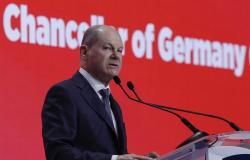
The date of publishing:
24/04/2024 07:00
Putin’s regime is meant to be a kind of icebreaker that tears apart the US-led world order on behalf of all humanity. Washington and its allies and partners have allowed themselves to be taken by surprise by Putin again and again – from Libya, Syria and central Africa to Ukraine. But what will happen in the long run? Bearing in mind that not even a czar like Putin can escape death, how will Russia evolve (or become involved) in the next decade and beyond? Here are five possible scenarios about Russia’s future that the US and allies should prepare for, according to Foreign Affairs.
Putin presents himself as the new czar, but a real czar would have no reason to worry about the succession crisis looming on the horizon in Russia. But Putin has a lot to worry about – that’s why he needs to fake the election.
At the end of his new term as president, Putin will be 78 years old. Life expectancy in Russia doesn’t even reach 67 – Russians who make it past 60 can expect to live into their 80s. Russia has few confirmed centenarians. Putin might join them, but even Stalin died at some point.
Russia on the model of France
France is a country with deep-rooted bureaucratic and monarchical traditions – and a rich revolutionary tradition. The revolutionaries abolished the monarchy, only for it to return in the person of a king and an emperor, only to disappear again as more republics arose and died.
France built and lost a vast empire with many colonies. For several centuries, the rulers of France, led by Napoleon, threatened their neighbors.
Russia also has a statist and monarchical tradition that will endure regardless of the nature of future political systems, and a revolutionary tradition that is no longer relevant, but lives on in institutions and memory as a source of inspiration and as a warning.
Very few countries can say they have much in common with Russia, but France may be more like Russia than any of them.
With all of France’s problems, it is hard to find a country that could provide a more suitable realistic model for a prosperous and peaceful Russia. For Russia to become more like France—a democracy with a rule of law system that is proud of its absolutist and revolutionary past but no longer threatens its neighbors—would be a very difficult achievement to achieve.
France has had a very difficult road to becoming what it is today – some might say that Russia needs its own de Gaulle to help consolidate a liberal order, although no such hero figures looks on the horizon at present.
However, Russia’s problem in 1991 was not that Yeltsin did not live up to de Gaulle, but that the country was much further from a stable Western-style constitutional system than France had been three decades earlier.
Russia in retreat
Some Russians would be happy to see Russia transform into a country that resembles France, but for others, it would be a taboo scenario. We can imagine a future authoritarian nationalist leader who, like Putin, is convinced that the US is out to destroy Russia, but who is worried about the country’s bleak future and is willing to blame Putin for the situation.
In other words, someone who will please those who voted with Putin now, but who manages to convince them that the war against Ukraine is bad for Russia.
Although Russia’s authoritarian regime has again demonstrated its wartime resilience, the severe lack of domestic investment and diversification, as well as Putin’s inability to stem the demographic crisis and his role in the technological collapse, may make nationalists more convinced to recognize that Russia is on a path of self-destruction.
Many have privately concluded that Putin is treating the survival of his own antiquated regime with the country’s survival as a great power.
Last summer, Yevgeny Prigozhin was forced to abandon his short-lived revolt when he found himself almost alone on the march to Moscow. But although he failed to attract enough support from the Russian elites, the regime’s supporters were not quick to come to Putin’s defense either.
Abandoning the war in Ukraine and the fight against the West could be a result of Putin’s removal from power, or it could come after his death. It could also be something Putin will be forced to do, short of being removed from power, following significant threats to his leadership.
However it happens, it would notably involve tactical moves triggered by the recognition that Russia lacks the ability to fight the West indefinitely, that it is paying a huge price for taking this path, and that it risks losing to always the vital relations with Europe, in exchange for a humiliating dependence on China.
Russia as a vassal
The staunch pro-Putin elites pride themselves on having found an option that is still better than the West. The close relationship between Beijing and Moscow surprised many analysts aware of the troubled past relations between the two nations, including the Sino-Soviet rift in the 1960s that culminated in a brief border war.
Although Russia remains the only country that still controls territory lost to the Qing empire, that has not stopped the rapprochement between Moscow and Beijing, including joint military exercises that have become more frequent and geographically spread over the past 20 years.
However, cultural and societal relations between the two peoples remain superficial. Russians are culturally European, and few of them speak Chinese – unlike the number of English speakers.
The two leaders have seen each other 42 times so far, addressing each other with phrases such as “my best friend” (Xi, about Putin) and “dear friend” (Putin, about Xi).
As China has increasingly stepped into its role as a major partner in its relationship with Russia, the two countries have announced that they have entered into a “comprehensive strategic partnership”. Three decades ago, trade between the two countries was worth 16 billion dollars, and although it had only risen to 78 billion by the mid-2010s, in 2023 it will exceed 230 billion.
Apart from the jet engines that China buys from Russia, the rest of the relationship flows pretty much in one direction – Moscow is dependent on Beijing.
The imbalance in the relationship between Moscow and Beijing has led analysts to speak of Russia as a vassal of China.
The shared commitment to build a world order best suited to their dictatorial regimes and to dominate the regions around them means that this relationship of de facto vassalage continues, even though neither leader wants it.
Russia in the role of North Korea
Although Russia and North Korea are two very different countries – the former having a territory 142 times larger than the latter – Russia could become a kind of giant North Korea: repressive internally, isolated on externally, armed with nuclear weapons and dependent on China, but capable of opposing and challenging it.
Russia in chaos
As Russia wreaks havoc abroad, from Eastern Europe to Central Africa and the Middle East, Moscow may fall victim to the chaos as well.
There are many possible causes for such a crisis to occur in the near future: an internal uprising that gets out of control, one or more natural disasters that exceed the authorities’ ability to manage them, a nuclear accident or the deliberate sabotage of a nuclear power plant, the death to a leader – intentional or not.
Countries like Russia, with decaying institutions and a deficit of legitimacy, can be suddenly overwhelmed by a series of catastrophic events when they are subjected to a crisis that they cannot cope with.
Although the Russian Federation is less vulnerable to territorial disintegration than the Soviet Union was, since the territorial units of which it is composed are no longer so clearly demarcated, for ethnic or political reasons, there are also some problematic regions, such as the North Caucasus and Kaliningrad, an exclave that is isolated more than 600 kilometers from the rest of the country.
If Russia descends into chaos, China may step in to reclaim the vast territories in the Amur River basin that the Romanovs took from the court of the Qing dynasty.
Japan could forcefully claim the Northern Territories, which the Russians call the South Kuriles and Sakhalin Island—perhaps even part of the Russian Far East mainland.
The Finns could reclaim the part of the Karelia peninsula they once controlled.
Such actions could trigger a general collapse or have the opposite effect – a mass mobilization of Russia.
The Forked Road of Russia
Russia’s future is bifurcating: one of the paths represents a risky descent even deeper into the arms of China, the other, a return to Europe with very few chances of success.
For Russia to benefit from both options at the same time – to endure as a great power with a dynamic new economy, neither having to yield to the West nor become a permanent vassal of China, to dominate the Eurasian region and put the foundations of a world order in which authoritarianism and the predation of other countries are tolerated – would require some profound changes that are far beyond Russia’s ability to implement.
In the (very likely) case that Russia does not become a new France any time soon, the coming to power of a Russian nationalist who recognizes the long-term price the country is paying for its extreme anti-Western posture remains the most likely path to a Russia that can find a stable place internationally, according to Foreign Affairs.
In the near future, a step in this direction would be to stop the war in Ukraine on terms that are favorable to Kiev: a truce in which the annexed territories do not receive legal recognition and in which Ukraine’s right to join NATO, the EU or any other is not violated international organization that wants to receive it as a member.
Editor: Raul Nețoiu
Download the Digi24 app and find out the most important news of the day





